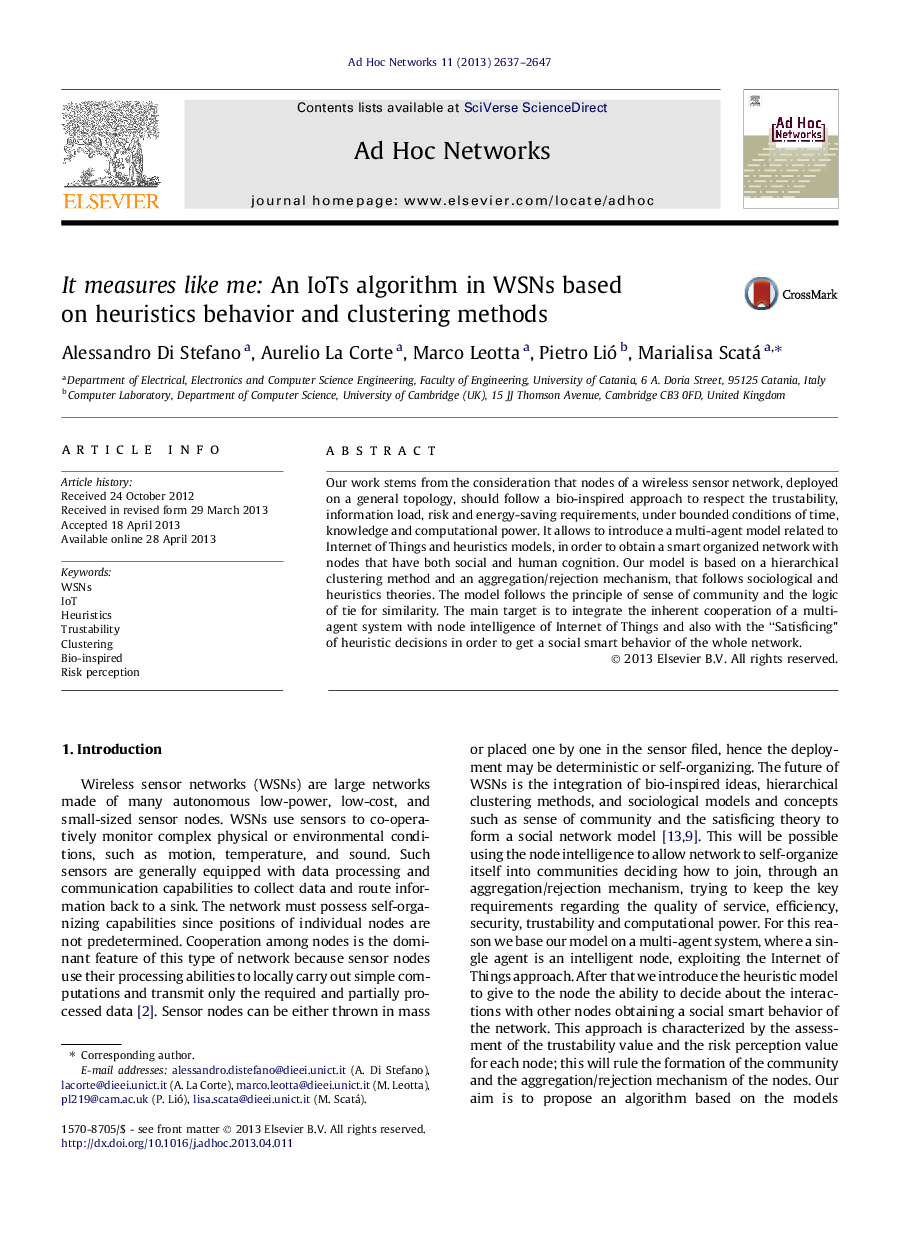| Article ID | Journal | Published Year | Pages | File Type |
|---|---|---|---|---|
| 445504 | Ad Hoc Networks | 2013 | 11 Pages |
Our work stems from the consideration that nodes of a wireless sensor network, deployed on a general topology, should follow a bio-inspired approach to respect the trustability, information load, risk and energy-saving requirements, under bounded conditions of time, knowledge and computational power. It allows to introduce a multi-agent model related to Internet of Things and heuristics models, in order to obtain a smart organized network with nodes that have both social and human cognition. Our model is based on a hierarchical clustering method and an aggregation/rejection mechanism, that follows sociological and heuristics theories. The model follows the principle of sense of community and the logic of tie for similarity. The main target is to integrate the inherent cooperation of a multi-agent system with node intelligence of Internet of Things and also with the “Satisficing” of heuristic decisions in order to get a social smart behavior of the whole network.
